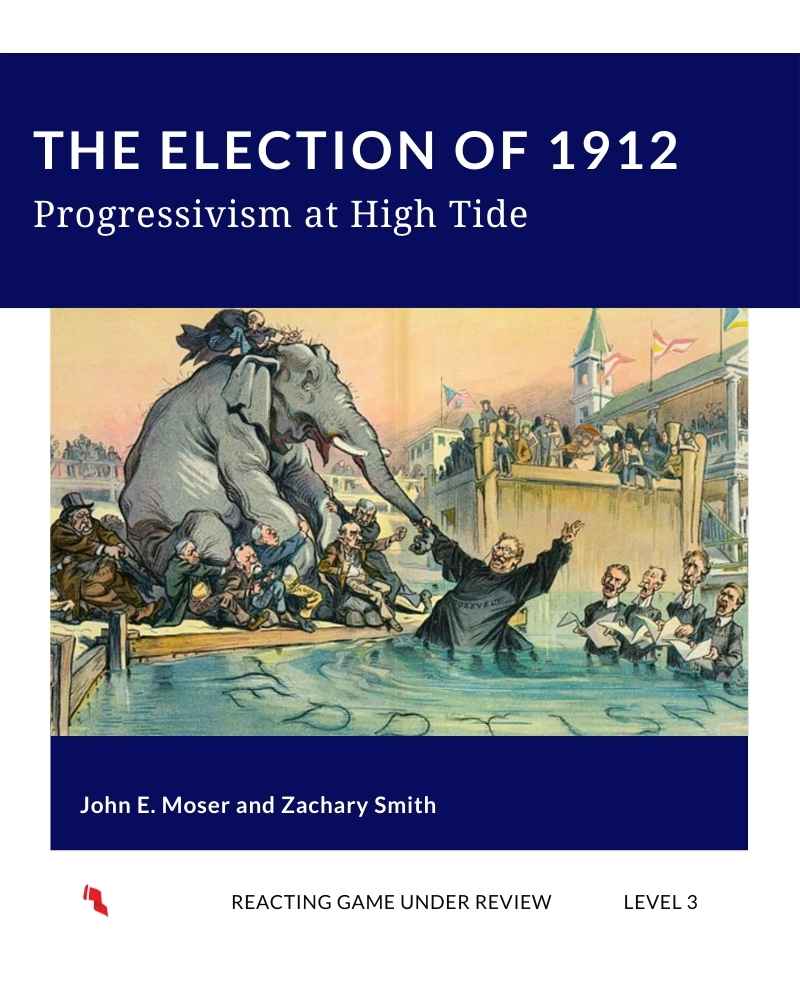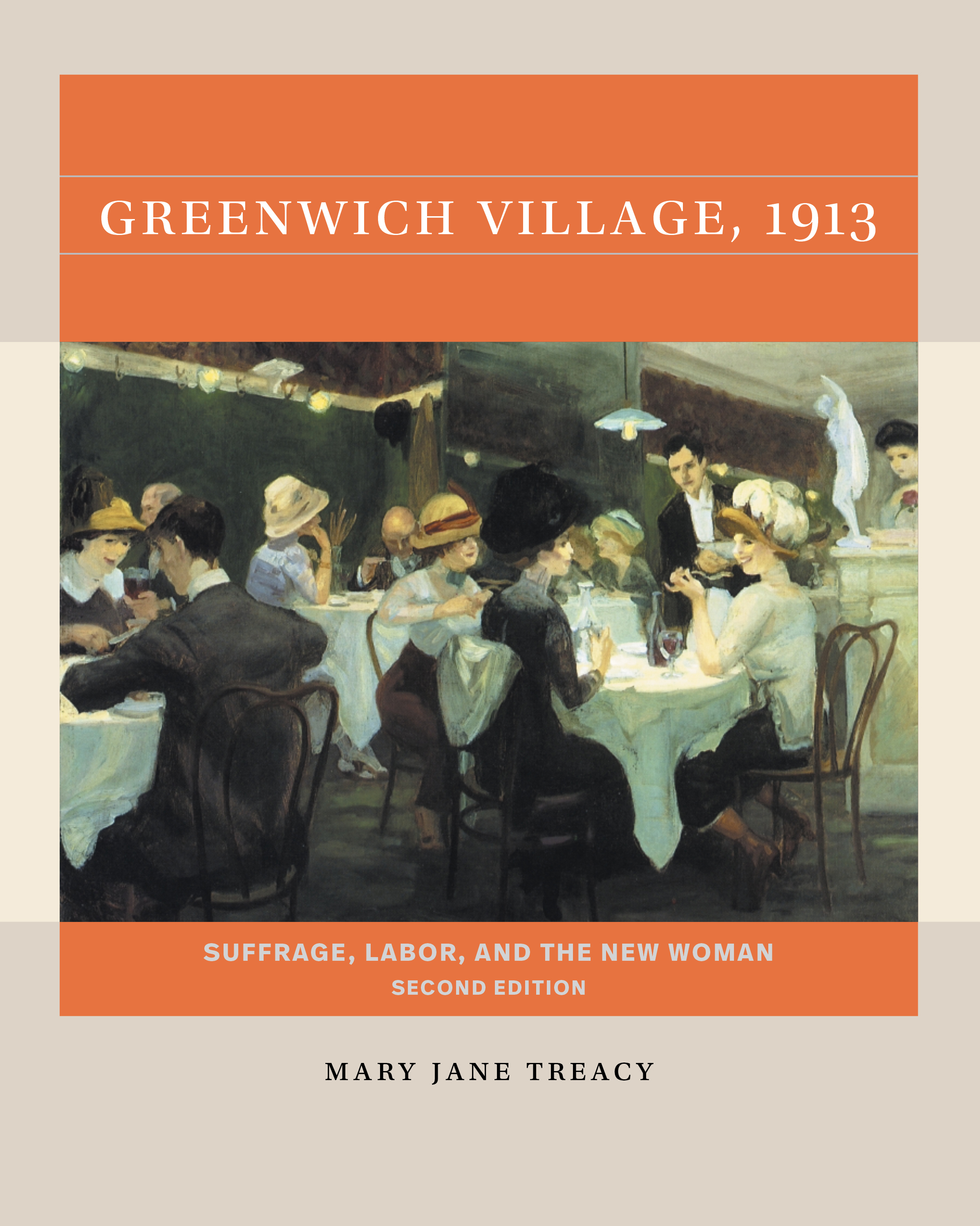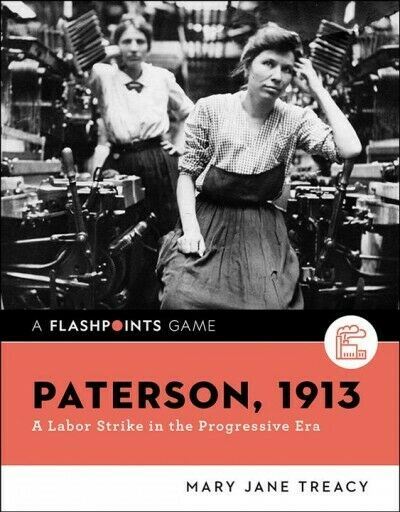 |
THE ELECTION OF 1912
Progressivism at High Tide: The Election of 1912
by John E. Moser and Zachary Smith

Play this game recently? | Debating the Future of American Democracy Progressivism at High Tide places students in the midst of one of the most fascinating political events of U.S. history--the presidential election of 1912, in which all of the candidates described themselves as "progressive." But what did it mean to be "progressive"? The progressives of the early twentieth century famously disagreed on all sorts of issues, but what held them together? What were the basic principles of progressivism, and how could one apply those principles into specific policy questions, such as what to do about large corporations, whether women should be allowed to vote, whether or not to restrict immigration, and whether African-Americans should have full political and social equality? This is a Level 3 game that is still under development but has been approved by the Reacting Editorial Board (REB) for general use. A detailed explanation of the editorial process and game levels can be found on our REB Page. |
Details
|
Using the Game
Class Size and Scalability Class Time
This game can be used on its own, or with other games. These pairings are meant to be illustrative rather than exhaustive or prescriptive. The Election of 1912 may pair well with:
Assignments You can adjust the assignments based on the desired learning outcomes of your class. This game can include journalism and letter writing. All roles are required to give formal speeches. |
 GAME MATERIALS
GAME MATERIALS
Reacting Consortium members can download all game materials below. You will be asked to sign in before downloading.
Please Fill out the Permissions Request Form Before Using Progressivism at High Tide in Your Class!
Gamebook All students need a Gamebook, which includes resources and historical content. Members can download the Gamebook, and provide it to students for free or at cost. VERSION 1.3. Updated September 2022. | Instructor's Manual The Instructor's Manual includes guidance for assigning roles, presenting historical context, assignments, activities and discussion topics, and more. | Role Sheets Students also need a Role Sheet, which contains biographical information, suggestions for further reading, and role-specific info or assignments. |
John E. Moser
John E. Moser is professor of history and chair of the masters program in American History and Government at Ashland University. He did his undergraduate work at Ohio University, and has an M.A. and Ph.D. in history from the University of Illinois at Urbana-Champaign. At Ashland he teaches courses on modern European, American and East Asian history, and in 2016 received the university’s Edward and Louaine Taylor Award for Excellence in Teaching. John has published numerous works on subjects ranging from comic books to Japanese foreign policy. He is author of four books, the most recent of which is The Global Great Depression and the Coming of World War II, which was published by Routledge in 2015. He has also published three games for the Reacting to the Past series, including Japan, 1941: Between Pan-Asianism and the West; Europe on the Brink, 1914: The July Crisis; and (with Nicolas W. Proctor) Restoring the World, 1945: Security and Empire at Yalta. He lives in Ashland with his wife Monica, their daughter Stanzi, and their three dogs. | Reacting and Related Titles
|
Zachary Smith
Zachary Smith began teaching at Samford University in Fall 2013 in the Core Curriculum and has taught in the Fellows Program since 2018. A native of Indiana, he remained in-state to attend Purdue University, where he received his B.A. in psychology. After briefly considering a future as a clinical psychologist, he relocated to Athens, GA, where in 2012 he earned his Ph.D. in history at the University of Georgia. Zac’s research has centered on the First World War, race, identity, and the obligations of citizenship. He has published articles on these topics in the Journal of Southern History and the Washington Post. In his first book, Age of Fear: Othering and American Identity during World War I (Johns Hopkins University Press, 2019), he explores the manner in which concerns about an increasingly diverse society led many Americans between 1914 and 1918 to reimagine their German enemy as a non-white and existential threat to American democracy. His next research project will explore the United States’ entry into World War I from a cultural and social perspective. |
Members can contact game authors directly if they have questions about using the game. We also invite instructors join our Facebook Faculty Lounge, where you'll find a wonderful community eager to help and answer questions.
|
|
|


